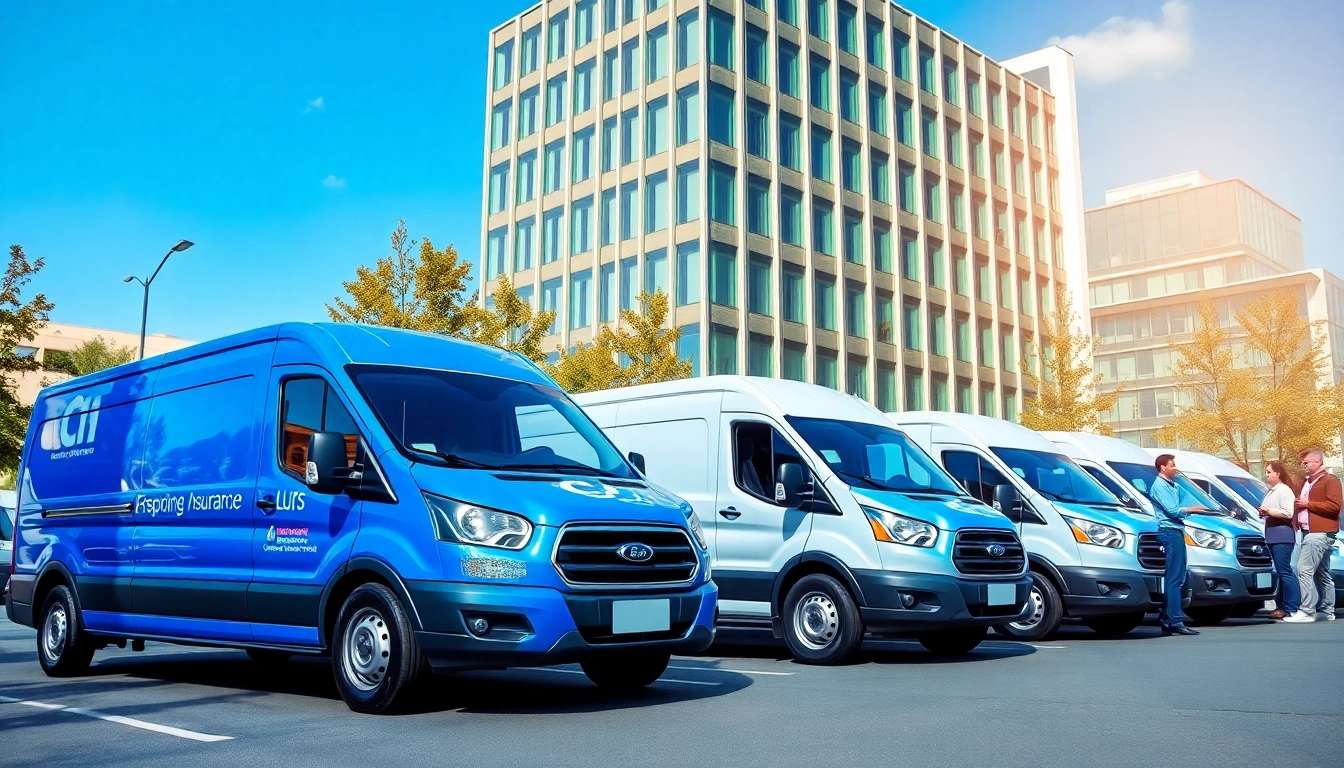Understanding Commercial Auto Insurance: Protecting Your Business Fleet
What is Commercial Auto Insurance?
Definition of Commercial Auto Insurance
Commercial auto insurance is a type of insurance specifically designed to cover vehicles used for business purposes. This includes cars, trucks, vans, and other vehicles that are employed both for transporting goods and for driving personnel associated with the business. Unlike personal auto insurance, which strictly covers vehicles used for personal or family purposes, commercial auto insurance accommodates the unique risks and liabilities that come with operating a vehicle in a business context. It protects against legal liabilities that may arise from accidents, damages, or injuries caused while driving for business activities.
Importance for Businesses
The significance of Commercial auto insurance cannot be overstated for businesses that rely on transportation. Whether a business uses its vehicles to deliver products, provide services, or conduct day-to-day operations, the potential for accidents and other incidents is a constant risk. Having a commercial auto insurance policy helps mitigate these risks by providing financial protection following an incident, thus allowing businesses to operate without the constant fear of unexpected liabilities that could lead to severe financial distress.
Types of Coverage Options
Commercial auto insurance is not one-size-fits-all; it offers varying coverage options that can be tailored to meet the specific needs of a business. The common types of coverage include:
- Liability Coverage: This is essential for covering bodily injury and property damage costs incurred by others in an accident where the insured vehicle is at fault.
- Collision Coverage: This covers damages to the business vehicle resulting from collisions, regardless of who is at fault.
- Comprehensive Coverage: Coverage for damages caused by events other than collisions, such as theft, vandalism, or natural disasters.
- Medical Payments Coverage: This helps cover medical expenses for injuries sustained by drivers and passengers in the business vehicle during an accident.
- Uninsured/Underinsured Motorist Coverage: This is crucial if an accident involves a driver who lacks adequate insurance or is completely uninsured.
Benefits of Commercial Auto Insurance
Financial Protection Against Liabilities
One of the primary benefits of commercial auto insurance is the financial security it provides against third-party liability claims. In the event of an accident where a business vehicle is involved, the costs associated with injuries and property damage can quickly escalate. Commercial auto insurance covers these costs up to the policy limits, protecting the business’s assets from being depleted by legal claims.
Enhancing Business Credibility
Having adequate commercial auto insurance in place enhances a business’s credibility. Clients and partners are more likely to trust a company that demonstrates responsibility through proper insurance coverage. This assurance helps to forge strong business relationships and could potentially lead to increased sales and customer loyalty, as clients feel more comfortable dealing with a company that prioritizes risk management.
Peace of Mind for Fleet Operators
For businesses operating a fleet of vehicles, one of the benefits of commercial auto insurance is the peace of mind it provides. Fleet operators can focus on their core business activities without the constant worry that an accident could derail their operations. Knowing that they are adequately insured allows fleet managers to concentrate on efficiency and productivity while ensuring that their employees are secure in their roles.
Choosing the Right Commercial Auto Insurance Policy
Assessing Your Business Needs
Choosing the right commercial auto insurance policy begins with assessing your business’s unique needs. Factors to consider include the number of vehicles currently utilized, the type of goods transported, and whether the vehicles are driven locally, regionally, or over long distances. It’s essential to account for the risks inherent in your specific operations and choose coverage levels according to the size and scope of your business.
Comparing Coverage Options
Once your needs are outlined, the next step involves comparing coverage options from different providers. Be sure to scrutinize the specifics of each policy, including the types of coverage included, exclusions, limits, and deductibles. Obtaining multiple quotes can help in making an informed decision and potentially save costs while securing the necessary protections.
Understanding Policy Terms and Conditions
Understanding the terms and conditions of a commercial auto insurance policy is vital for ensuring that your business is adequately protected. Common areas of confusion include how coverage limits are applied, what constitutes a business vehicle, and any exclusions that may affect claims. It’s advisable to discuss these terms with an insurance agent who can offer clarification and ensure proper comprehension.
Common Misconceptions About Commercial Auto Insurance
Myths vs. Realities
Many misconceptions surround commercial auto insurance that can mislead business owners. One prevalent myth is that personal auto insurance covers business-related vehicle use. This is typically not the case, as personal insurance policies usually exclude coverage for vehicles utilized for business purposes. It is crucial for business owners to understand that a separate commercial policy is generally necessary to avoid gaps in coverage.
FAQs Regarding Coverage
Business owners often have questions regarding specific aspects of commercial auto insurance. For example:
- Do I need commercial auto insurance if I only use my vehicle occasionally for business? Yes, even infrequent use of a personal vehicle for business purposes can necessitate commercial auto insurance.
- Will my employees be covered under my commercial auto insurance? Typically, yes, but it’s essential to ensure that the policy explicitly covers employees using business vehicles.
- Can I use commercial auto insurance for personal use of my vehicle? Generally, commercial auto insurance policies have exclusions that prevent personal usage, so it’s best to consult with an agent for clarity.
Cost Factors to Consider
The costs associated with commercial auto insurance can vary significantly based on multiple factors. Key determinants include the type of vehicles covered, the frequency of use, the business’s industry, and the driving records of those operating the vehicles. Higher-risk industries may incur greater premiums, so understanding these elements can help business owners budget more effectively for insurance needs.
Steps to File a Claim for Commercial Auto Insurance
Preparing for the Claim Process
Filing a claim can be a daunting process, but preparation can significantly ease the burden. Gather all necessary documentation, including accident reports, photographs, vehicle inspection reports, and witness statements. Having this information readily available can streamline the claims submission process.
Key Information to Provide
When submitting a claim, it’s crucial to provide comprehensive details concerning the incident. This includes the date, time, and location of the accident; the parties involved; the police report (if applicable); and any medical reports if injuries were sustained. Providing thorough information reduces the likelihood of coverage disputes and accelerates the claims evaluation process.
After the Claim: What to Expect
Post-claim, policyholders can expect an adjuster to review the information submitted, which may include contacting other parties involved for their statements. Claims can take varying lengths of time to resolve depending on their complexity, so staying in touch with the insurance company for updates is a good practice. Once the claim is processed, payments will be made based on the terms of the policy.














Post Comment